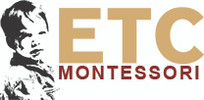Product Overview
Saturday, May 11, 2024
8:00 AM – 4:00 PM (CST)
In person instruction, in a Model Classroom
Workshop Description:
This dynamic workshop is curated for Montessori lower elementary educators who wish to refine their science teaching practices. It centers on presenting complex scientific ideas in ways that are developmentally appropriate for young learners. The course takes a comprehensive approach, seamlessly weaving together subjects like climate, weather, geography, ecology, and history to illustrate the interconnectedness of these disciplines through cause and effect, structure, function, and change.
Key Objectives:
Developmentally Appropriate Science Concepts: Educators will learn techniques to introduce complex science ideas in ways that are accessible to lower elementary students. The workshop will offer methods to simplify these concepts without losing their essence, making them relevant to students' everyday lives.
- Incorporation of Diverse Scientific Subject Matter: Special attention will be paid to integrating a variety of scientific topics, enriching the curriculum and allowing for a multidisciplinary educational experience. This approach encourages students to see the links between different areas of study and their cumulative impact on understanding the world.
- All-encompassing Approach to Climate and Weather: The program aims to provide educators with tools to help students grasp the multifaceted relationship between climate and weather. Participants will learn to create lesson plans that cover these topics in depth, fostering an appreciation for how they influence each other and the planet.
- Integration of Core Subjects: The workshop will guide teachers in combining weather, climate, functional geography (using impressionistic charts), ecology, and history. This integration aims to help students explore essential concepts and see the connections across these areas, enhancing their ability to think critically and understand complex systems.
- STEM Projects for Practical Understanding: Each concept discussed will be tied to STEM projects designed to highlight and contextualize key science and engineering practices. These hands-on projects will not only reinforce scientific knowledge but also develop students' skills in problem-solving, design, and innovation.
Workshop Format:
Interactive lectures, hands-on STEM activities, and collaborative planning sessions will make up this workshop, providing educators with the experience and resources to bring an integrated science curriculum to life in their classrooms.
Who Should Attend:
This workshop is intended for Montessori educators working with lower elementary students who are looking to deepen their understanding of science education and its practical applications through STEM projects.
Benefits:
Participants will leave with a comprehensive set of strategies for teaching complex science concepts, an enhanced ability to integrate diverse scientific disciplines, and a suite of STEM projects ready to implement in their classrooms











